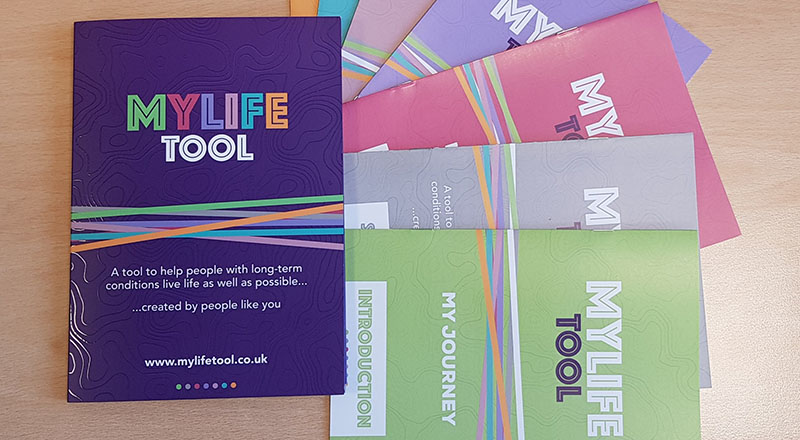Practitioners invited to join online launch of support programme
People living with long-term conditions are being encouraged to tap into their creativity through the launch of a self-management support tool developed by Teesside University academics.

Dr Stephanie Kilinç and a team from the University’s School of Social Sciences, Humanities & Law, worked with Neuro Key and people with long-term conditions to create MyLifeTool, a resource to help and encourage people to manage and adapt to their condition as it impacts on their life.
Neuro Key is the working name for Tees Valley, Durham and North Yorkshire Neurological Alliance, which aims to improve the lives of people living with a neurological condition. Dr Stephanie Kilinç, is a registered health psychologist and a trustee of Neuro Key.
To accompany MyLifeTool the team developed a programme called MyCreativeLife, which can be delivered online or face-to-face by health and social care professionals and practitioners, peer mentor and support workers and organisations with support work streams. It involves seven online sessions which use creative activities to support people to reflect on how they self-manage their long-term conditions.
MyCreativeLife and a practitioner handbook to accompany the programme will be launched online in a special event from 1pm to 4pm on Wednesday 2 December. Any practitioners or support organisations wanting to find out more about the programme can join the launch by signing up here or contact Joanne Cole at Neuro Key on jo.cole@na-tvdny.org.uk.
Dr Kilinc said: 'We know that engaging in creative activities can be beneficial to well-being and that they are used as self-management strategies. The MyCreativeLife programme uses specific creative activities designed in partnership with people with long-term conditions to encourage and support reflection on different elements of the self-management experience.
We know that engaging in creative activities can be beneficial to well-being and that they are used as self-management strategies
'In this way, our programme utilises problem-solving, contemplative and self-developmental aspects of creativity to support people with long-term conditions to actively reflect upon their self-management experience and identify and work through strategies which are beneficial to them and fit within the context of their lives.'
She added: 'The programme has been developed in partnership with people with long-term conditions and practitioner psychologists. People with a range of long-term conditions, including diabetes, asthma, depression, anxiety, hypertension and epilepsy, have taken part in the programme and reported positive effects on their self-management experience and wellbeing.'
Each session within the online programme will focus on a specific creative activity which is designed to encourage reflection and discussion. MyLifeTool is a creative self-management tool, made up of a series of booklets with the focus being on reflection.
Each booklet focuses on that journey, from coming to terms with a diagnosis, to coping strategies to deal with the physical or mental aspects of a condition. There are sections on taking control and setting personal goals, connecting with others and finding your voice. Further information about MyLifeTool and MyCreativeLife can be found at mylifetool.co.uk
